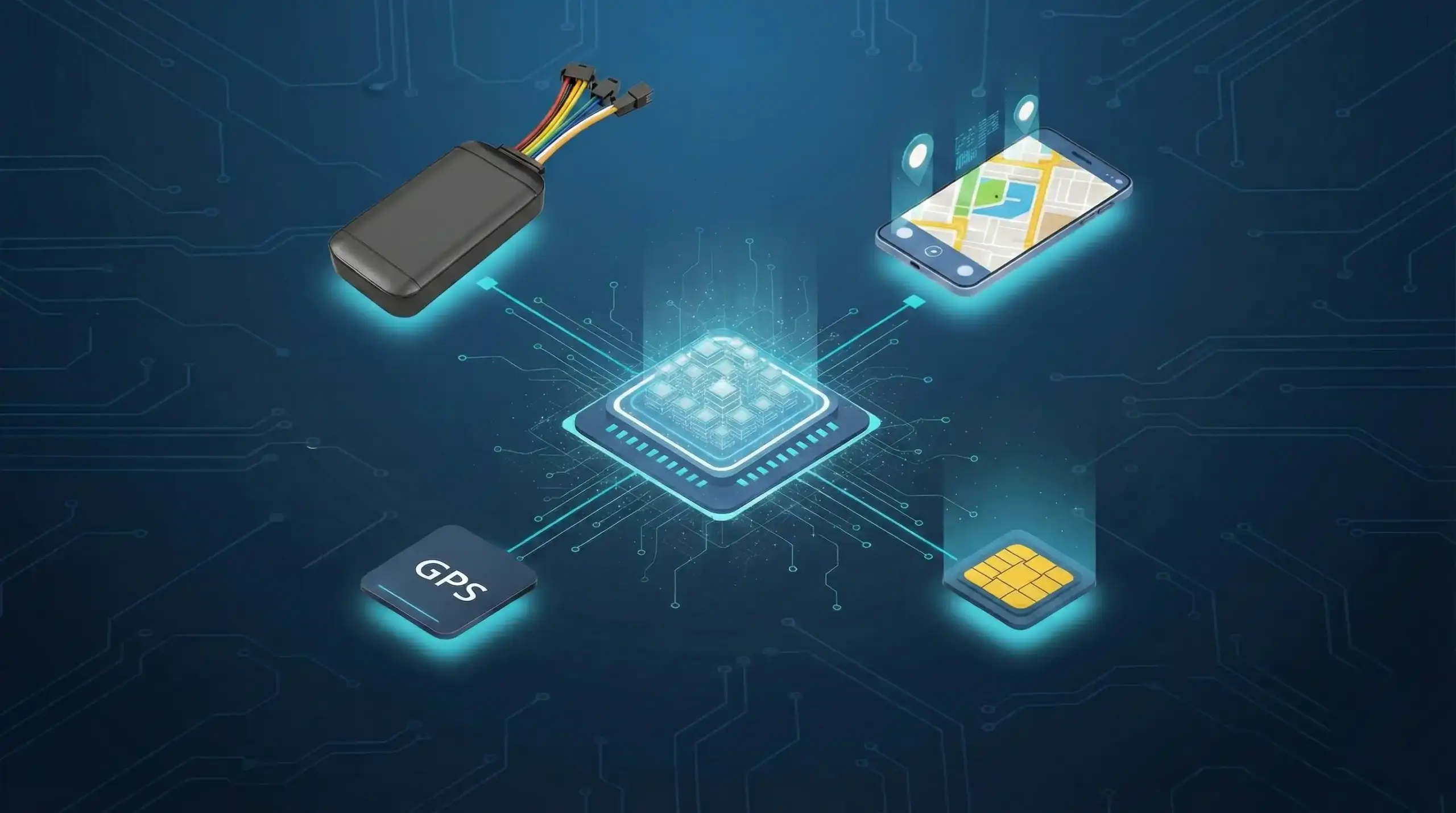Comprensión de los rastreadores con cable
Rastreadores con cable, Como su nombre sugiere, están de seguimiento de dispositivos que están físicamente conectados al sistema eléctrico de un vehículo. Esta conexión garantiza una fuente de alimentación constante, Permitir que estos dispositivos funcionen sin la necesidad de cambios de batería o reemplazos. Una de las principales ventajas de un rastreador con cable es la confiabilidad; Por lo general, ofrecen un servicio ininterrumpido incluso cuando el vehículo está apagado, Mientras permanezca conectado a la energía. Esta característica los hace adecuados para aplicaciones que requieren monitoreo constante, tales como gestión de flotas o seguimiento de vehículos de alto valor.
Otro beneficio de los rastreadores con cable es las velocidades de transferencia de datos. Debido a su conexión directa, Estos dispositivos a menudo comunican datos de manera más rápida y eficiente que sus homólogos inalámbricos. Esto puede ser particularmente ventajoso para los usuarios que necesitan un rastreador GPS en tiempo real para actualizaciones de ubicación instantánea. Además, Los rastreadores con cable tienen menos probabilidades de sufrir problemas de conectividad que a veces pueden plagar rastreadores GPS inalámbricos, especialmente en áreas con mala recepción celular.
Sin embargo, También hay desventajas asociadas con rastreadores con cable.. La instalación puede ser más complicada, a menudo requiere ayuda profesional para garantizar una conexión adecuada con el sistema eléctrico del vehículo. Esto también puede conducir a costos adicionales y posibles preocupaciones de garantía del vehículo. Además, Los cables involucrados pueden enredarse o dañarse, posiblemente conduciendo a mal funcionamiento. En escenarios donde se priorizan la facilidad y portabilidad de la instalación, Un rastreador GPS inalámbrico podría ser más apropiado.
Por lo tanto, Los rastreadores con cable son ideales para individuos o empresas que priorizan la confiabilidad y las actualizaciones en tiempo real y están dispuestos a invertir en instalación profesional. Son particularmente beneficiosos para los operadores de flotas o para aquellos que buscan el mejor dispositivo antirrobo para sus automóviles, Garantizar el seguimiento seguro y continuo de activos valiosos.
Explorando rastreadores inalámbricos
Los rastreadores inalámbricos han ganado popularidad debido a su facilidad de uso y la comodidad que ofrecen en comparación con las opciones con cable tradicionales. Estos dispositivos utilizan tecnología inalámbrica para conectarse y comunicarse, Hacerlos una opción flexible para varias aplicaciones. La incorporación de un rastreador GPS inalámbrico en el sistema de seguimiento de su vehículo puede mejorar las capacidades de seguimiento en tiempo real, Proporcionar a los usuarios la capacidad de monitorear la ubicación de su vehículo sin estar atados por cables. Esta flexibilidad es particularmente beneficiosa para las personas que con frecuencia cambian las configuraciones de vehículos o requieren una implementación rápida de soluciones de seguimiento.
Una de las características destacadas de los rastreadores GPS inalámbricos es su portabilidad. Se pueden mover fácilmente de un vehículo a otro o incluso ser usados en pertenencias personales., lo que los hace ideales para aquellos que prefieren un enfoque minimalista para el seguimiento. Además, La facilidad de instalación generalmente asociada con estos dispositivos permite a los usuarios configurarlos en cuestión de minutos. Este proceso de configuración rápido es especialmente importante para aquellos que pueden no tener un amplio conocimiento técnico., ya que les permite emplear un dispositivo de seguimiento para un vehículo con mínimo alboroto.
Si bien muchos beneficios están asociados con rastreadores inalámbricos, También es esencial considerar los inconvenientes potenciales. Por ejemplo, Los dispositivos inalámbricos dependen de la energía de la batería, que puede requerir un mantenimiento regular para garantizar que el dispositivo permanezca funcional. Además, Pueden surgir problemas de conectividad en áreas con un servicio celular deficiente, Impactar la eficiencia de la plataforma de seguimiento de ProTrack GPS. A pesar de estas preocupaciones, Los rastreadores inalámbricos generalmente se destacan en situaciones que requieren movilidad y conveniencia, Solidificar su lugar como algunos de los mejores dispositivos antirrobo para automóviles en el mercado hoy en día. De este modo, Evaluar estos factores es crucial para determinar si un rastreador inalámbrico o con cable se adapta a las necesidades de seguimiento específicas.
Análisis comparativo: Cableado vs inalámbrico
Al seleccionar un dispositivo de seguimiento, Comprender las diferencias entre las opciones cableadas e inalámbricas es crucial. Cada tipo tiene sus propios méritos y se adapta a las diferentes necesidades de los usuarios en función de varios factores, como la efectividad., costo, mantenimiento, y rendimiento en diversos entornos.
La efectividad juega un papel importante en la comparación de los sistemas de rastreadores GPS con cable e inalámbricos. Los rastreadores con cable a menudo se consideran más confiables porque están directamente conectados al sistema eléctrico del vehículo, Proporcionar una fuente de energía consistente que elimine la necesidad de reemplazos de batería. En contraste, Los rastreadores GPS inalámbricos pueden depender de las baterías, que puede agotarse y posteriormente obstaculizar las capacidades de seguimiento, potencialmente dejando vehículos sin supervisar en momentos críticos.
El costo es otra consideración esencial. Los dispositivos de seguimiento con cable pueden tener mayores costos de instalación iniciales, Dada la necesidad de instalación profesional, especialmente en vehículos complejos. Sin embargo, a menudo tienen costos de mantenimiento a largo plazo más bajos, ya que no requieren reemplazos de batería. Los rastreadores inalámbricos tienden a ser menos costosos inicialmente, Pero las compras de baterías en curso y los costos potenciales de reemplazo pueden acumularse con el tiempo, haciéndolos potencialmente más costosos a largo plazo.
Los requisitos de mantenimiento divergen significativamente entre los dos tipos. Los rastreadores con cable requieren una intervención mínima una vez instalada, Si bien los dispositivos inalámbricos pueden requerir controles o reemplazos periódicos de batería para garantizar que permanezcan funcionales. Este aspecto puede ser particularmente relevante para los usuarios que prefieren un “establecer y olvidar” sistema de seguimiento de vehículos, Como la opción cableada exige menos atención.
El rendimiento en varios entornos también influye en las opciones de usuario. Los rastreadores con cable generalmente funcionan bien en entornos urbanos debido a su instalación fija, mientras que los dispositivos inalámbricos ofrecen flexibilidad para el uso portátil. La adaptabilidad situacional puede ser esencial para las empresas que necesitan rastrear vehículos en áreas remotas. De este modo, Evaluar el escenario de uso esperado es vital al sopesar la decisión entre la tecnología cableada e inalámbrica.
Evaluando la efectividad, costo, mantenimiento, y desempeño ambiental de dispositivos de seguimiento cableado e inalámbrico, Los usuarios pueden determinar qué solución se alinea mejor con sus necesidades de seguimiento específicas.
Tomar la decisión correcta para sus necesidades
Al elegir entre un rastreador con cable y un rastreador GPS inalámbrico, Comprender sus requisitos personales y escenarios de uso es crucial. Cada tipo de rastreador ofrece distintas ventajas y inconvenientes que pueden influir en su decisión. Los rastreadores con cable generalmente están conectados al sistema eléctrico del vehículo, Permitir una fuente de alimentación y confiabilidad constantes. Esto los convierte en una opción atractiva para aquellos que buscan una solución a largo plazo para el seguimiento del vehículo., particularmente en empresas donde un sistema de seguimiento de vehículos es esencial para la gestión de la flota. En contraste, Un rastreador GPS inalámbrico es generalmente más fácil de instalar y se puede colocar discretamente dentro del vehículo, haciéndolo una excelente opción para uso personal o de seguimiento casual.
El presupuesto es otro factor importante que debería informar su decisión. Si bien los rastreadores con cable pueden requerir una tarifa de instalación profesional, Por lo general, ofrecen un rendimiento confiable con un costo de mantenimiento mínimo a largo plazo.. En cambio, Las opciones inalámbricas a menudo tienen un costo inicial más bajo, pero pueden incurrir en tarifas de suscripción en curso para el software de seguimiento de GPS. Recomendamos evaluar el costo total de propiedad para ambos tipos, considerando la inversión inicial y los gastos continuos, tomar una decisión rentable.
Sus preferencias también son parte integral de tomar la decisión correcta. Para alguien que desea un dispositivo de seguimiento para el vehículo que sea fácilmente extraíble, Los rastreadores inalámbricos son ventajosos. Dichos rastreadores pueden transferirse entre vehículos o llevar durante los viajes. Por otro lado, Si el objetivo es evitar el robo del vehículo, Optar por el mejor dispositivo antirrobo para automóviles a menudo incluye sistemas cableados conocidos por su robustez y resistencia a la manipulación.
Evalúe sus necesidades de seguimiento a fondo, y considere modelos bien revisados como Protrack GPS Tracker y la plataforma de seguimiento de ProTrack GPS, que son conocidos por sus características robustas en categorías cableadas e inalámbricas. Mediante una cuidadosa consideración de los casos de uso, restricciones presupuestarias, y preferencias personales, Puede tomar una decisión informada que se alinee con sus requisitos de seguimiento.









